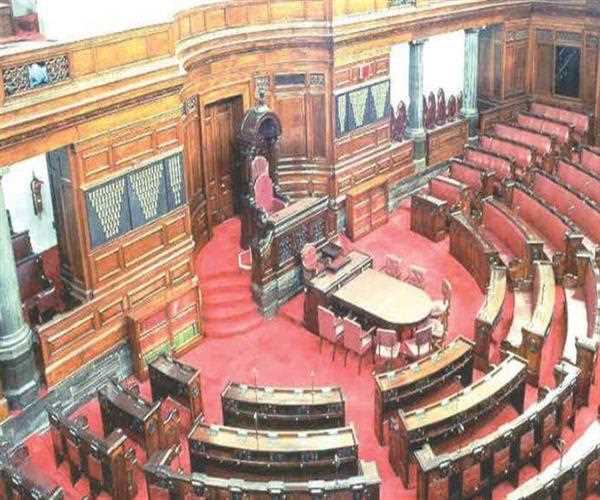
22-Sep-2020
Rajya Sabha Chairman Powers And Suspension Of MPs Provision
When 8 MPs were suspended due to uproar in the Rajya Sabha, the Opposition boycotted, while the suspended MP (Suspended MP) staged a sit-in in the lawn of Parliament House. Efforts are on to persuade the opposition MPs, but in the meantime, do you have a question about the circumstances under which members of the Rajya Sabha are legally suspended and What rights does it the Chairman (Rajya Sabha Chairman) have ? Let's get the answers in detail.
In the Rajya Sabha or matters related to the House, the Chairman has the authority to interpret the Constitution and the rules and no argument or dispute can be made with the Chairman in relation to such interpretation.
The decisions of the Chairman cannot be questioned, cannot be criticized, and opposing any of the decisions of the Chairman is a contempt of the House and the Chairman.
The Chairman is not obliged to give reasons for his decisions. Normally, these decisions are given by the Chairman in the House, but in case of any contingency, his decisions can be read by the Deputy Chairman at his request.
According to the constitution, the Chairman has many types of powers. The constitution determines the powers and duties of the Chairman as follows:
-He can suspend the meeting in the event of postponement or absence of quorum.
- In case of resignation from the House by a member, the Chairman has the right to accept it or not.
- Under the tenth schedule of the constitution, it can decide on a member of Rajya Sabha on the basis of change.
- He may also make rules to give effect to the provisions of this Schedule.
-The Chairman also has the power to direct that the same action is taken in the case of breach of privilege in case of a willful violation of rules.
-The Chairman may allow a member to address the meeting in his native language.
Along with this, maintaining the order in the assembly is also the fundamental duty and authority of the Chairman. For this, the Chairman has many disciplinary powers. Such as preventing discrepancies or repetitions in a member's speech, interfering with members' unnecessary or derogatory remarks and asking them to withdraw such remarks.
READ HERE MORE : Remembering Late Dr. Kapila Vatsyayan - The Art Genius
The Chairman can also order the removal of unparliamentary or indecisive words in the debate. He may ask a member guilty of improper conduct to leave the House and may suspend him if any member insults the Speaker or obstructs the proceedings of the House. He can also postpone or suspend the meeting of the House in case of a serious disorder.
If the behavior of a member is not in accordance with the protocol, the Chairman can ask him to leave the house. In such a situation, that member may have to be absent from the rest of the day's proceedings. Secondly, the suspension of a member can come in the event that he is continuously obstructing the proceedings of the House or insulting the office of the Speaker as per rules.
In the event of a suspension, the point of order is arranged. A member can put his point in front of the Chairman and after considering it, the decision of the Chairman is final. The Chairman has sufficient powers to enforce his decisions and hence the members cannot challenge his final decision.
Not only this, but Article 122 of the Constitution also provides that the validity of the functioning of Parliament cannot be challenged in the court on the basis of perceived irregularities of the procedures.

Content Writer
I am a content writter !
Join Our Newsletter
Subscribe to our newsletter to receive emails about new views posts, releases and updates.
Copyright 2010 - 2026 MindStick Software Pvt. Ltd. All Rights Reserved Privacy Policy | Terms & Conditions | Cookie Policy